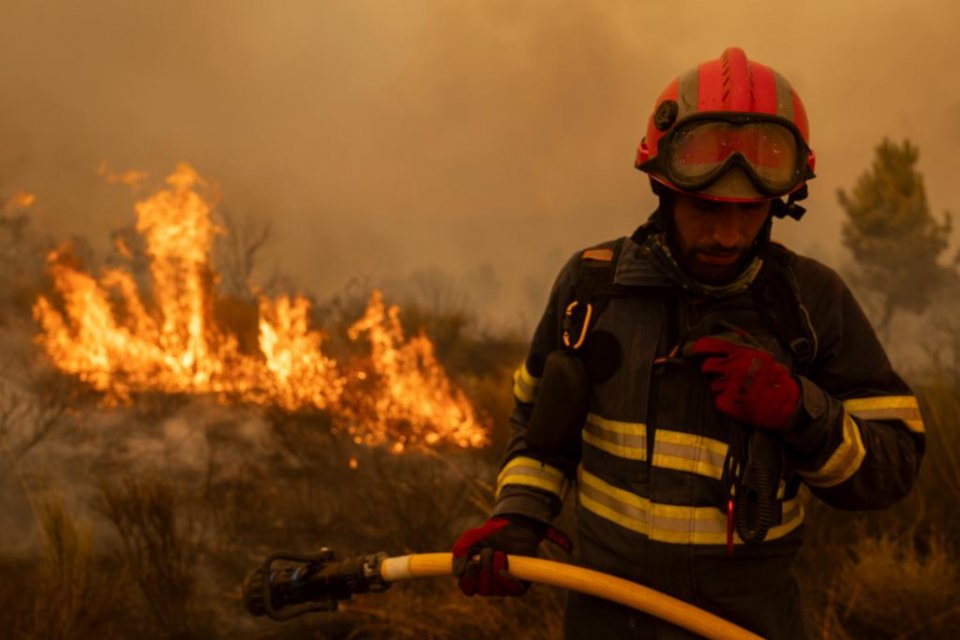Unusually hot, arid and windy weather that drove one of the worst wildfire seasons ever documented on the Iberian Peninsula was made 40 times more likely by human-induced climate change, according to new research published on Thursday.
The findings, from the World Weather Attribution (WWA) network, indicate that today’s conditions are around 30% more intense than they would have been before the widespread use of fossil fuels in the industrial era.
Spain and Portugal faced hundreds of wildfires through July and August. Fuelled by temperatures soaring past 40°C and persistent winds, the flames spread quickly across vast areas. ALSO READ: Spanish government categorises wildfire-hit areas as ‘disaster zones’.
The disasters left eight people dead across the Iberian Peninsula (four in Spain), forced more than 35,000 from their homes, and burned over 640,000 hectares – close to two-thirds of Europe’s total scorched land this year. Authorities now say most fires have been brought under control as cooler weather has set in.
Since the 1980s, Europe has been warming at twice the global average, according to the EU’s Copernicus Climate Change Service.
WWA – an international collaboration of scientists that examines the role of climate change in extreme weather – analysed the factors that allowed the Iberian fires to spread so rapidly, including Spain’s hottest-ever ten-day stretch in August, as confirmed by the country’s meteorological service AEMET.
The researchers concluded that without climate change, such a severe 10-day episode of heat, dryness, and wind would occur only once every 500 years.
Unlike full attribution studies, which rely on climate models to quantify the exact influence of global warming, this research relied solely on observational data. Even so, the conclusions are in line with previous findings, including another recent WWA study on wildfires in Turkey, Greece, and Cyprus that showed climate change made fire-friendly conditions there ten times more likely.
The study also noted that demographic changes have worsened fire risk. Over decades, migration from rural regions to urban centers has left large tracts of abandoned farmland and unmanaged forests in Spain and Portugal, creating heavy fuel loads.
Suggested prevention strategies include mechanical vegetation clearing, controlled burns and promoting grazing by animals such as goats, sheep and horses.
On Monday, Spanish Prime Minister Pedro Sánchez outlined a 10-point strategy to improve the country’s preparedness for climate-fueled natural disasters, including closer coordination with Portugal and France. ALSO READ: Spanish PM admits wildfire prevention plans are ‘clearly insufficient’.
Subscribe to the Weekly Newsletter from Spain in English.
Click here to get your business activity or services listed on our DIRECTORY.


